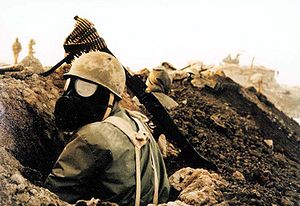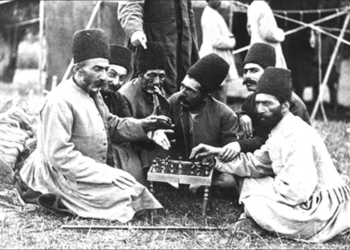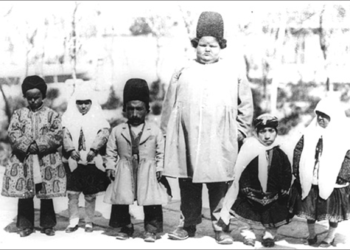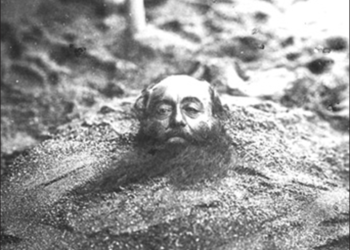
by Warren L. Nelson
A story posted on the Foreign Policy magazine website Sunday caused an eruption of interest when it said classified documents from the CIA showed the United States “helped Saddam as he gassed Iran.”
News reports picking up and relating the Foreign Policy story generally took that to mean the United States helped Iraq to gas Iran, while all the documents actually show is that the United States helped Iraqi defenses over the time period in which it was gassing Iran.
Indeed, that story has been known for decades. During the last two years of the Iran-Iraq war, as the United States worried that Iraq might actually lose the war, US intelligence provided Iraq with information gleaned from satellites showing where along the border Iran was planning its next offensive. That enabled Iraq to concentrate its defensive forces at the right spot and blunt each successive Iranian attack.
The lead paragraph of the Foreign Policy story said, “The US government may be considering military action in response to chemical strikes near Damascus. But a generation ago, America’s military and intelligence communities knew about and did nothing to stop a series of nerve gas attacks far more devastating than anything Syria has seen, Foreign Policy has learned.”
That has also been known for many years—as has the fact that Washington knew of the Soviet use of chemical weapons in Afghanistan in the 1980s and Egypt’s use of chemical weapons in Yemen in the 1960s under Gamal Abdul Nasser and did nothing to stop them either.
The Foreign Policy story is not really a revelation about US policy so much as it is an effort to argue that the United States has no basis for opposing Syrian use of chemical weapons when it did not oppose Saddam Hussein’s use of them.
Of course, one wag commented, “That means Washington has no right to oppose slavery in the world today because it practiced slavery itself for the better part of a century.” It also suggests that no US president has the right to change the policy of a predecessor.
There is no question that Washington aided Iraqi defenses with intelligence information at the same time Saddam was gassing Iranians. But the documents published with the Foreign Policy article show the US government was not at all happy with Saddam’s policy on chemical weapons, and feared it would be bad for the United States and the world in the long run.
The United States also launched a program of international pressure to block Saddam’s chemical program. But the documents show Washington concluded it had moved too late; it could slow Saddam’s manufacturing of chemical weapons, but it could not stop it because it had gone on long enough for Iraq to sustain it with limited outside help.
The Foreign Policy article uses the declassified documents to establish that the United States knew in 1984 that Saddam had started using mustard gas against Iranian attacks in 1983. About 1985, that information leaked out into the media and before long everyone knew what Iraq was doing. Congressmen repeatedly talked publicly about Iraqi gas attacks. And congressmen who traveled to Baghdad during the war complained about Iraqi chemical weapons to the Iraqi officials with whom hey met.
What rarely got attention was that Iran soon developed chemical weapons, too, and used them against Iraq—although it never used them in the same quantity as Iraq and it only used them in a battle in response to Iraqi use of chemical weapons.
The Foreign Policy article says, “It was the express policy of [President Ronald] Reagan to ensure an Iraqi victory in the war, whatever the cost.” But that was never the Reagan policy; the Administration simply did not want Iraq to lose the war—and when it thought Iraq was about to lose, it started supplying the intelligence Iraq needed to halt Iranian attacks.
In fact the article even cites Reagan as reading a memo that predicted Iraq would lose in 1987 if the United States didn’t tell it where the Iranians were concentrating for attacks. Reagan then wrote in the margin: “An Iranian victory is unacceptable.” He said nothing about wanting an Iraqi victory.
In fact, one year earlier, the Administration had rejected a similar proposal to provide intelligence information because the Iraq regime was viewed as “anathema” and Iraqi officials as “thugs,” the Foreign Policy article says.
The article makes a major point of one sentence in a CIA analysis that says, “As Iraqi attacks continue and intensify, the chances increase that Iranian forces will acquire a shell containing mustard agent with Iraqi markings. Tehran would take such evidence to the UN and charge US complicity in violating international law.” The Foreign Policy report said the Reagan Administration “did nothing to assist Iran in its attempts to bring proof of illegal Iraqi chemical attacks to light.”
That was true. But it hardly mattered. Iran easily proved it was being attacked with chemical weapons. It sent injured troops to hospitals all over Europe and invited Europeans to Iran to see the impact of the attacks on the flesh of the victims. No one doubted Iraq was using chemicals. But the UN showed no more interest in criticizing Baghdad for using chemicals against Iranians than it did in criticizing the Soviet Union for using chemicals against Afghans in the very same decade.
The US government didn’t pound the table about either case.
The documents also show much concern in the CIA about the Iraqi development of chemical weapons, though none of those passages are quoted in the Foreign Policy article, which seems aiming mainly at discouraging any action against Syria for using chemicals.
The writers of the CIA documents fretted about the long-term damage to US goals from Iraq’s chemical policies. Their chief concern was that more countries would decide to copy Iraq and develop chemical weapons.
A 1984 document said: “This proliferation, coupled with apparent international tolerance for CW [chemical warfare] weapons use in local conflicts, increases the probability that chemical weapons will be used more frequently in the future and complicates the ability of the US to conclude an effective chemical weapons treaty. In addition, it increases the likelihood of terrorist acquisition and use.”
Although the Foreign Policy article makes no mention of it, the United States moved as early as 1984 to stop Iraqi chemical use by embargoing the sale to Iraq of US-made chemicals that can be used to make chemical weapons and by pressing US allies to impose similar embargoes. Only a few other countries agreed and their enforcement was generally found to be lax.
In 1985, a CIA report concluded that the embargo policy would not work because Iraq was already so far along with its chemical buildup.
“US efforts to embargo Western equipment and precursor chemicals will slow the Iraqi chemical warfare program and impose greater costs but probably will not halt Iraq’s progress. Most production equipment is in place. Iraq is using numerous front companies and friendly Arab states to circumvent the Western embargo on precursor chemicals,” a January 1985 CIA report said.
None of this is to say that the Reagan Administration policy of the mid-1980s is readily defensible. After all, it created an ever-tightening policy to restrict sales of weapons to either side while at the same time it was giving Saddam very helpful intelligence as well as giving Iran anti-tank and anti-aircraft missiles (in an exchange for hostages held in Lebanon).



















